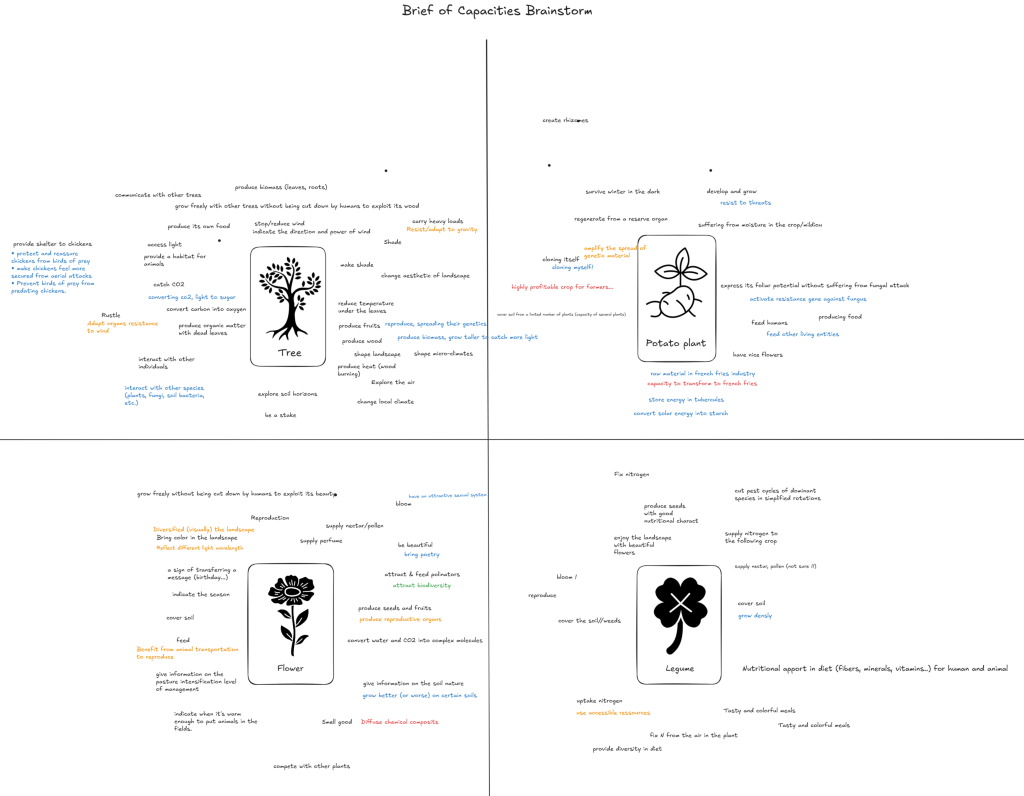In agricultural design, plants and animals are often used to the benefit of mankind. However, we’ve seen that this focus is causing many problems. What would happen if we would look not just at what a living entity can offer, but also at what it would prefer?
There are many challenges in today’s agriculture. Drought, emissions, and soil compaction, but also more ethical issues related to equality, equity, and intrinsic value. Plants, insects, and animals have capacities that can support more resilient food production systems. These capacities can help make the system more robust. However, until now they have mostly been used from the human perspective. Our projects starts with the needs of all the living entities in the system, to see if it helps create more just designs.
First, a non-human entity in the agricultural system is studied mainly for its capacities. For a plant, these can be rooting, producing leaves, converting solar energy into biomass, etc. Next, we challenge people to think about what the living entity would require from its surroundings to be comfortable, looking at the inclusion of agency, temporality, and deliberation. Next, we ask participants to rephrase the capacities of plants identified (if needed).
What we see is that, once people have shifted their focus towards a more holistic, inclusive farm design, they tend to rephrase capacities using more inclusive terms. This helps designers to consider a design that is tailored towards many, instead of just man.

